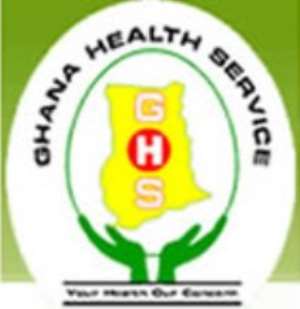
Accra, Aug. 4, GNA - Dr Sam Adjei, former Director General of Ghana Health Service (GHS), has called for effective service delivery strategies to be made top priority in dealing with issues relating to Emergency Obstetric and Newborn Care (EmONC) in the country.
He said this would reduce maternal and child mortality rate to attain the Millennium Development Goals (MDGs).
Dr Adjei made the call at a dialogue meeting on Friday organised by the Ministry of Health (MOH) to present an EmONC Assessment on Ghana's Health Sector.
The assessment was to measure the effectiveness of EmONC in the country, based on the indicators, also known as “signal functions” recommended by the World Health Organisation (WHO).
The indicator offers guidance on monitoring progress in the prevention of maternal and prenatal deaths, whereby facilities are assessed in order to determine the availability of EmONC services in the national and regional levels of the country.
Dr Adjei explained that the ability of health institutions to be prepared to deal with emergency delivery would become an issue of major concern if facilities to ensure that were either inadequate or unavailable.
He said it was necessary for managers and supervisors of various health institutions to have basic checklist based on the indicators to constantly know the institutions progress in addressing maternal and child deaths.
Dr Irene Agyapong–Amartefio, Greater Accra Regional Director of Health Service, called for the need to clearly define the core functions of supervisors and administrative managers and other staff as a way of evaluating workload at the various hospitals.
Dr Nelson Damale, Consultant at the Obstetrics and Gynaecology Department of Korle Bu Teaching Hospital, indicated the importance of maintaining equipment at all health institutions since they were expensive to purchase and even repair if not handled properly.
He said it was vital to consider the capacity of skilled attendants at delivery centres, adding that the need to properly manage the human resource capacity in hospitals including training more nurses from the various districts in the country.
Dr Patrick Aboagye, Deputy Director of Ghana Health Service (GHS) in-charge of Reproductive and Child Health, in a presentation on the EmONC assessment, said six out of the nine regional hospitals identified in the country were fully comprehensive.
He said 46 per cent of all health facilities had no means of transport for patients during referrals, but expected patients to make their own arrangement.
The report said most health centres, clinics and maternity homes had only a midwife, with 33 per cent of facilities reporting that they had used the National Ambulance System for emergency referrals.
GNA




 Avoid pre-registered SIMs, buyer and seller liable for prosecution – Ursula Owus...
Avoid pre-registered SIMs, buyer and seller liable for prosecution – Ursula Owus...
 Election 2024: Mahama has nothing new to offer Ghanaians, Bawumia is the future ...
Election 2024: Mahama has nothing new to offer Ghanaians, Bawumia is the future ...
 OSP files fresh charges against ex- PPA Boss
OSP files fresh charges against ex- PPA Boss
 Withdraw unreasonable GH¢5.8m fine against former board members – ECG tells PURC
Withdraw unreasonable GH¢5.8m fine against former board members – ECG tells PURC
 Akroma mine attack: Over 20 armed robbers injure workers, steal gold at Esaase
Akroma mine attack: Over 20 armed robbers injure workers, steal gold at Esaase
 Those who understand me have embraced hope for the future — Cheddar
Those who understand me have embraced hope for the future — Cheddar
 Ghana will make maiden voyage into space should Bawumia become President — Chair...
Ghana will make maiden voyage into space should Bawumia become President — Chair...
 Train crash: Despite the sabotage, we shall not be deterred and will persevere —...
Train crash: Despite the sabotage, we shall not be deterred and will persevere —...
 Tema-Mpakadan railway project a perversion of the original viable concept design...
Tema-Mpakadan railway project a perversion of the original viable concept design...
 Train crash: Elsewhere, everyone involved in the test will either be fired or re...
Train crash: Elsewhere, everyone involved in the test will either be fired or re...
